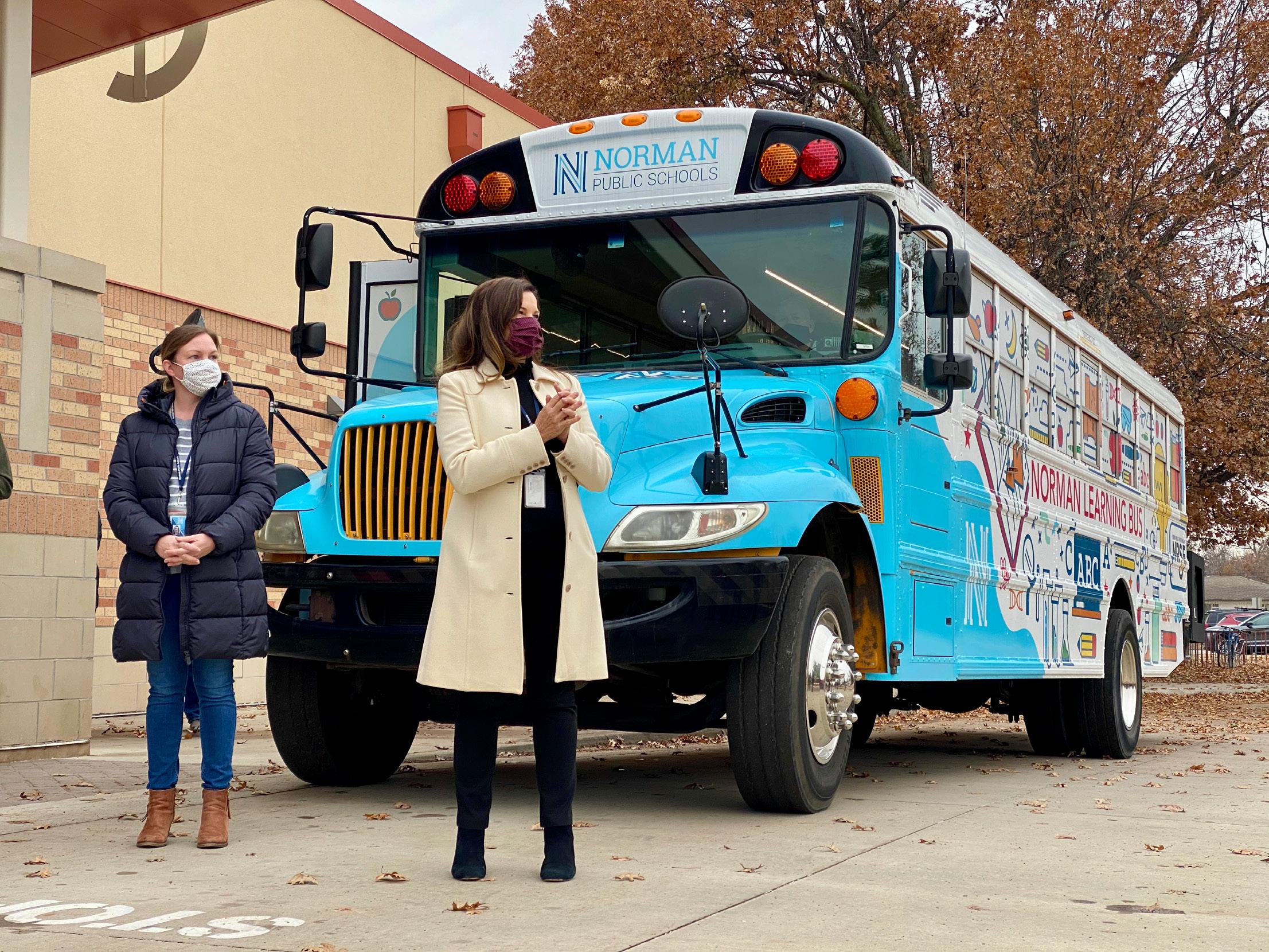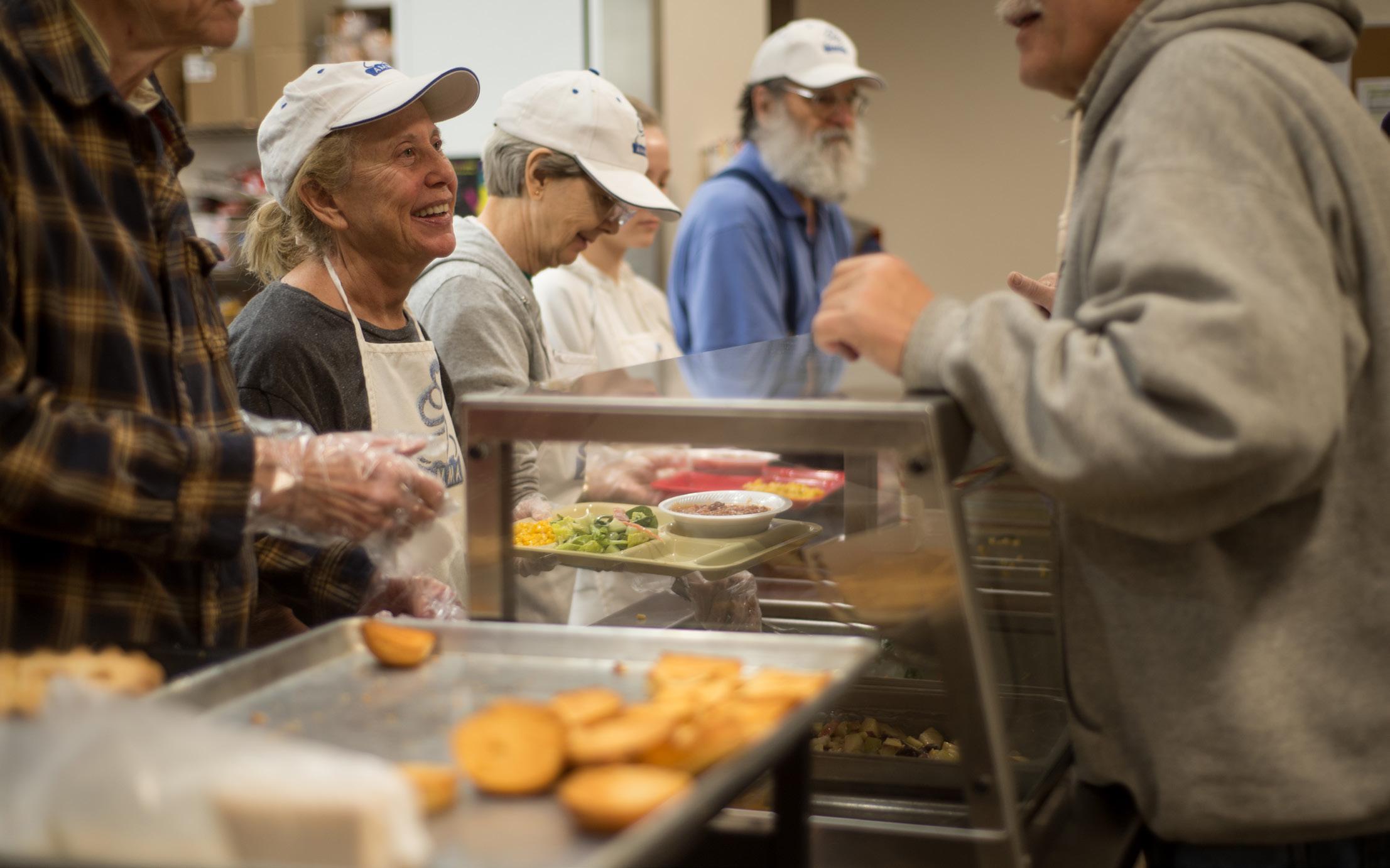
5 minute read
Service Spotlight: Sergeant Kellee Robertson
Service Spotlight: Sergeant Kellee Robertson
By: Bill Moakley
Growing up in Moore, Norman Police Sergeant Kellee Robertson never considered law enforcement as a career. Had it not been for a poster in the hallway of a building on the Oklahoma State University – Oklahoma City campus, she may never have.
“I didn’t have any law enforcement in my background, no family members that were in law enforcement,” Robertson said. “I was about 19 years old and one day I just saw a poster in a hallway. From that day forward, I knew I was going to be a police officer.”
Robertson graduated with a degree in police science and began her career in Norman as an animal welfare officer. Five years later, she applied for and was accepted to Norman’s 37th Police Academy.
Following a four-year stint in patrol, Robertson was hired as part of the Special Investigations division, which includes crimes that might need undercover work such as narcotics. At the time, Norman had never had a canine officer serve outside of patrol. But that was about to change.
“Our last patrol canine had retired, so I got with my lieutenant and said, ‘I think a canine would be great to have here with us because we do work drug crimes,’” Robertson recalled. “I got my first canine, Pablo, in 2005 or 2006.”
As part of the Special Investigations division, Robertson worked crimes of all types. Additionally, she worked with her partner at the time, Sergeant Darin Morgan, to develop the department’s first drug interdiction program. Morgan is now retired.
“Interdiction in police work is basically out on the highways looking for people that are transporting large amounts of drugs and money,” Robertson explained. “Even human trafficking is a part of interdiction. We went to our bosses at the time and said, ‘we have I-35 here in Norman and we think this would be productive.’ Ultimately, we ended up making that program work and it’s still in operation today.”
Pablo was part of Robertson’s interdiction and special investigations work until he passed away in 2000. She then welcomed a new K9 partner named Kilo. They worked together until 2012 when Robertson took a position in the department’s Criminal Investigations division with an eye on working crimes against children. After learning the intricacies of such investigations, Robertson began working with Norman’s Mary Abbott Children House in 2013, a safe place for children to share their experiences regarding sexual abuse, physical abuse and neglect, as well as children who are witnesses to crime and in drug endangered situations.
Because of the nature of crimes against children and the toll it can take on investigators, most officers spend about five years working such crimes. In 2017, Robertson went back to working other major crimes in Norman. However, she recently returned to concentrating on Norman’s youngest victims.
“I feel like crimes against children are kind of a passion of mine,” Robertson said. “It’s hard work, but it’s so important that you really feel like you’re making a difference. I can’t change what has happened, but I can intervene and stop it from happening. And I can make the person who committed such a crime accountable for their actions.
“I started doing it in 2013 and I have cases I worked that long ago where the child in a case is almost an adult and I’m seeing them flourish. Had I not intervened their lives could have been completely different. It’s one of the best feelings that you can have in this profession.”
Robertson has also welcomed a new canine partner. Kimber joined NPD after Robertson heard of a police department in Ohio that had successfully welcomed a therapy dog as part of the department.
Kimber serves to both build bridges with the Norman community and to comfort fellow officers.
“When I started kind of generating the idea for the program, it was before COVID,” Robertson noted. “The relationship with the community and the police department was strained because of national events. Kimber transcends boundaries people might have with the police. I can take her out into the community and people see me, I wear detective clothes, but they see my badge and my gun. They see Kimber, who is a miniature Australian Shepherd, and she doesn’t look like a typical police dog. They’ll ask what kind of police dog she is, and I explain her purpose. Any strain that was there prior to our interaction goes away and they just want to pet the dog.”
Kimber is also at the department’s investigations center each day and is eager to comfort her fellow officers. She also provides support for witnesses to traumatic events or violence when they’re at the police department.
“A lot of people know the stresses that the police go through on a daily basis and the trauma that we are a part of, through our investigations,” Robertson said. “So, she serves as a comfort to us whether or not we just went to a really traumatic crime scene or had a really hard case that we investigated. Or if we’re just having a bad day.”
Scientific studies show having a dog around during times of stress reduces blood pressure and anxiety.
“It lightens the load of why you’re there, because for a second, you get to forget about why you’re there,” Robertson pointed out about Kimber’s work with victims or witnesses. “You’re talking about what may be one of the worst things that ever happened to you and you don’t have to think about that for a minute.”

Robertson has deep training in handling canine officers, including 80 hours directly aimed at handling patrol dogs, as well as ongoing training to ensure handlers and their pawed partners are able to interact as best as possible.
“It’s kind of like having a human partner,” she laughed. “You learn every day.”
So, how would Robertson grade Kimber’s ability to impact her fellow officers?
“As far as my ability to do my job, I probably could do it with or without her,” Robertson said. “But the attitude and the mood and the lightening of the load that she provides for us I think makes everybody in this office better.”
And if dog treats are the measure, Kimber is doing her job well.
“She knows exactly who has dog treats in their office. So, she’ll run in, and she’ll go straight to the office that has the dog treats. And no matter what that detective is doing at the time, they’ll stop and be so excited to see her. She just lightens the mood.” – BSM










